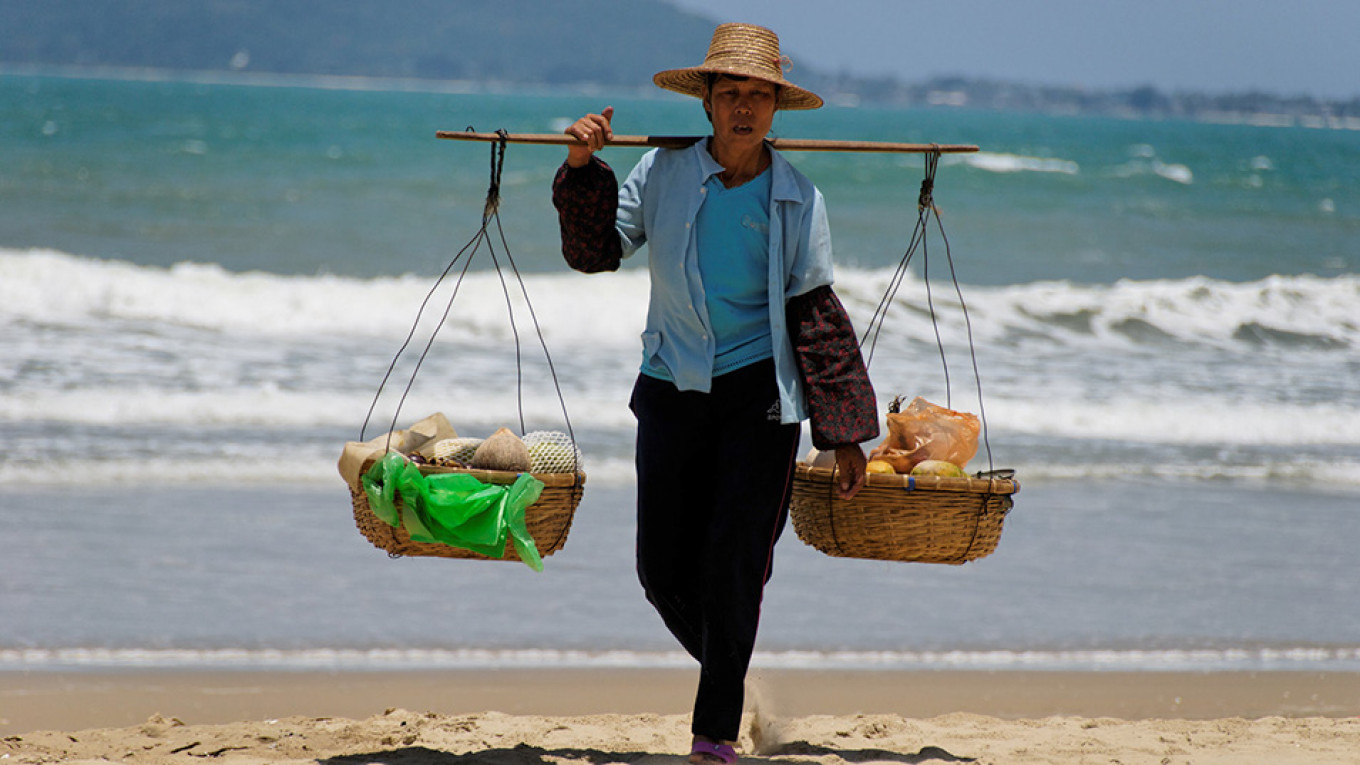
Russian tourists appear to be undeterred by a new flu-like coronavirus in China, Russian travel agencies told the state-run TASS news agency as the country’s Health Ministry called it a “biological threat.”
The virus has killed nine people and infected more than 400 in an outbreak originating from the central city of Wuhan, spreading fear of a global contagion and rattling financial markets. A popular destination for Russian travelers is Hainan island, a province off China’s southern coast 1,500 kilometers away from the outbreak’s epicenter.
“There are no cancellations at the moment,” Tez Tour, one of Russia’s largest tour agencies, told TASS on Tuesday.
At most, travelers called in to inquire about updates, Tez Tour said and added that bookings into Hainan kept coming in.
“We’re monitoring the situation, and so far demand for beach holidays in Сhina remains stable,” Intourist, Russia’s oldest travel agency, told TASS.
Several other unnamed sources in Russia’s tourist industry said demand for holidays in Hainan remained stable, TASS reported.
Russia’s consumer health watchdog, Rospotrebnadzor, advised Russian tourists who planned to go to China to refrain from visiting Wuhan and to steer clear of zoos and of markets selling animals and seafood.
Russia is now working to develop a vaccine against the coronavirus strain, Rospotrebnadzor was quoted by the state-run RIA Novosti news agency as saying.
“Yes, of course, the development of a vaccine is underway. Every time we have a mutation (of a virus), we start developing a vaccine immediately,” Anna Popova, the head of Rospotrebnadzor, was cited as saying.
RIA cited Elena Yezhlova, head of Rospotrebnadzor’s Epidemiological Surveillance Department, as explaining the process.
“The development of a vaccine is a long and complicated process; a decision is made on the basis of risk and the level of need dictated by the current situation,” Yezhlova was quoted as saying.
“At present, we will rely on the WHO’s recommendations.”
There are no suspected cases of coronavirus in Russia, the watchdog said, adding that it has strengthened its sanitary and quarantine control at all entry points into the country.
Symptoms of the virus, which can cause pneumonia, include fever, coughing and difficulty breathing. The infection can be passed from person to person, and 15 medical personnel are among those infected in China.
Fears of a pandemic similar to an outbreak of Severe Acute Respiratory Syndrome (SARS) that originated in China and killed nearly 800 people in 2002-2003 have roiled global markets, with aviation and luxury goods stocks hit particularly hard and the Chinese yuan tumbling.
Though the origin of the virus had yet to be identified, the World Health Organization said the primary source was probably of animal origin. Chinese officials have linked the outbreak to Wuhan’s seafood market.
More than 655,000 Russian tourists visited China between January and September 2019, Russia’s Federal Security Service (FSB) has said.
Reuters contributed reporting to this article.
